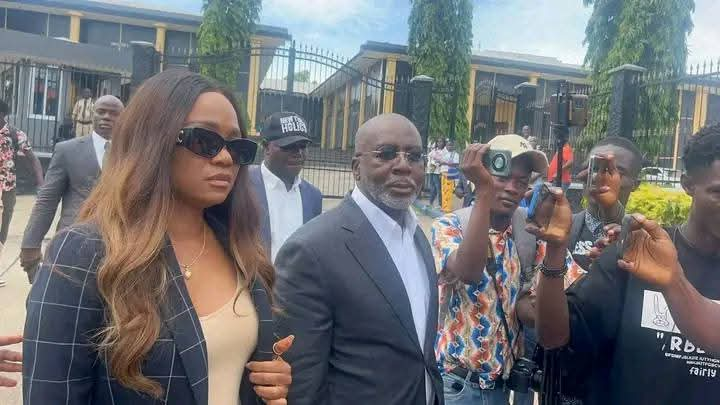The Liberia National Police (LNP) has concluded its investigation into the December 2024 arson attack on the Capitol Building, culminating in the indictment of several individuals, including prominent political figures. Former House Speaker Fonati Koffa, along with four others, now faces charges ranging from arson and criminal mischief to conspiracy and attempted murder. The charges stem from alleged actions taken both before and during the attack, including accusations of sabotage dating back to November 2024. The LNP’s report details a coordinated effort to damage and destroy a cornerstone of Liberian democracy, painting a picture of both direct involvement in the arson and higher-level orchestration and financing. The accused have been detained at Monrovia Central Prison, awaiting trial, and are subject to travel restrictions.
The LNP’s investigation has identified several key individuals allegedly involved in the attack on the Capitol Building. Thomas Isaac Etheridge, Chief of Maintenance in Koffa’s office, faces a litany of charges, including arson, criminal mischief, recklessly endangering another person, and attempted murder. He is accused of damaging the chambers in November and participating in the December arson. Eric Susay is charged with similar offenses, in addition to riot-related charges, theft of a police firearm, and aggravated assault. Steven Broh, another maintenance staff member, is accused of direct participation in the December attack. Jerry Pokah, a resident of New Kru Town, is alleged to have been involved in both the planning and execution of the arson. These individuals represent the operational level of the alleged conspiracy, directly involved in the physical acts of destruction.
The investigation also implicates high-ranking political figures, adding another layer of complexity to the case. Former Speaker Koffa is accused of criminal conspiracy, with alleged links to sabotage efforts preceding the December arson. Representatives Abu Kamara and Jacob C. Debee are charged with arson, criminal mischief, recklessly endangering others, attempted murder, and conspiracy. They are accused of participating in planning meetings and providing logistical support for the attack. These accusations paint a picture of political motivation behind the arson, potentially signifying a deep-seated conflict within the Liberian political landscape.
The LNP’s report has sparked controversy due to the omission of Unity Party lawmaker Priscilla Cooper from the list of suspects. Despite being among the seven lawmakers initially called in for questioning, she was cleared of any wrongdoing, along with Representatives Frank Saah Foko and Marvin Cole. This decision has fueled public speculation and allegations of selective prosecution, raising questions about the impartiality of the investigation and the potential influence of political factors. The conspicuous absence of her name from the indictment raises concerns about whether the LNP’s investigation was truly comprehensive and unbiased.
The LNP, however, maintains that its findings are “evidence-based and guided by law.” Inspector General Gregory O. W. Coleman has emphasized the gravity of the crime, characterizing it not as mere vandalism but as a direct assault on the heart of Liberian democracy. He has stressed that the legal proceedings will adhere to constitutional rights and due process, urging the public to remain calm and allow the judicial process to unfold. The LNP’s strong pronouncements aim to reassure the public of its commitment to justice and accountability, seeking to counter the narrative of selective prosecution and maintain public trust in the investigation’s integrity.
The impending trial of former Speaker Koffa and the other accused individuals marks a significant moment in Liberian history. The outcome of the legal proceedings will have far-reaching consequences, impacting not only the individuals involved but also the political landscape of the country. The allegations of political conspiracy and the controversy surrounding the exclusion of certain figures from the indictment add to the complexity and sensitivity of the case. The trial will be closely watched both within Liberia and internationally, as it represents a crucial test of the country’s commitment to the rule of law and its ability to address politically motivated violence. The pursuit of justice in this case is essential for upholding democratic principles and maintaining stability in Liberia.














